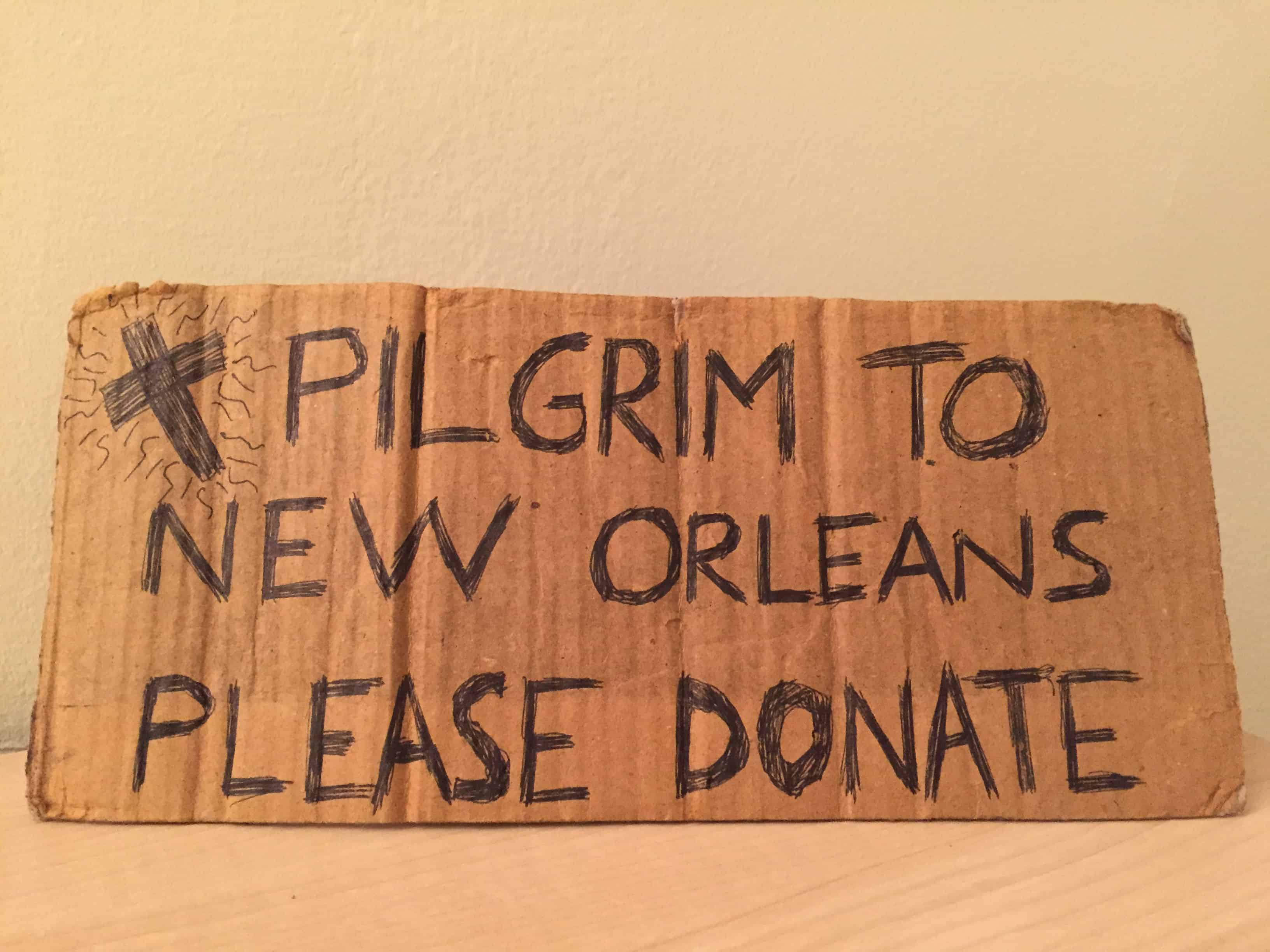Perhaps you, like 20 million others, have seen this video. When I saw it, I felt so thankful that I had purchased sandwiches for two homeless men earlier that day. I felt like I was on the good side.
But since that day — as on countless occasions prior to that day — I have not always been so generous. Sometimes I give to beggars. Sometimes I rationalize my way out of it.
In March 2014 I vowed to do better. That’s when I became a beggar for two weeks on my novitiate “pilgrimage.” I was initially sent to cities with Jesuit parishes. In those cities, people who loved the Jesuits were happy to help me get from one town to the next. Eventually, though, I had to stop relying on my Jesuit credentials.
I arrived in Fort Worth, Texas, around 7 a.m. on March 11. I knew no one in the city. As I left the bus station it weighed on my mind that, for the first time, I would have to beg on the street. How else would I pay for a ticket to my last destination?
That afternoon, I finally pulled a piece of cardboard from my backpack and scribbled some bold letters: “PILGRIM TO NEW ORLEANS. PLEASE DONATE.”
As I sat with my sign in one hand and my upturned baseball cap in the other, I was largely ignored. Even when I tried to speak to people as they passed, saying I was trying to get “home” or “to my family,”1 it was hard to make eye contact with anyone. Parents would switch children from one side to the other, trying to get between their children and me. One child — maybe about six years old — fell behind his family as he stared at me, puzzled. His family told him to come along; there was nothing to see here. I vowed that I would never ignore a beggar again.
Of course, I have ignored beggars since then. It’s particularly easy to ignore them when I’m with others, since I don’t want to hold up my friends. Sometimes I give change or cash, which is often a way to ease my guilt without actually having to talk to the person in need. Other times, when I’m at my best, I offer to buy the person some food, or perhaps to say a prayer with them. I acknowledge their humanity.
But there are so many needy people, especially downtown! I cannot possibly help them all! I end up helping some but walking past others. If I’m not careful, I decide not to help anyone. It’s only fair. If I have to overlook someone, I will overlook everyone.
But watch that video till the end. These words appear: “If you wait until you can do everything for everybody, instead of something for somebody, you’ll end up doing nothing for nobody.”
What if everybody did something for somebody?
I’m sure we would not end poverty and homelessness. But solving poverty isn’t really the point. Humanity is. Even though he knows that poverty is insurmountable,2 Jesus asks us to have compassion: “Give to everyone who begs from you.”3 He asks us to be human by treating the other as human.4 He might say to “give to everyone,” but I think he’d agree that doing something for someone is a pretty good start.
- Which was only partially a lie… I was trying to get to a Jesuit community, where I would be living for the next seven weeks. And Jesuits are — at least in beggars’ shorthand — my family. ↩
- Matthew 26:11. ↩
- Matthew 5:42. ↩
- For anthropologist Margaret Mead, compassion was the first sign of human civilization. ↩


